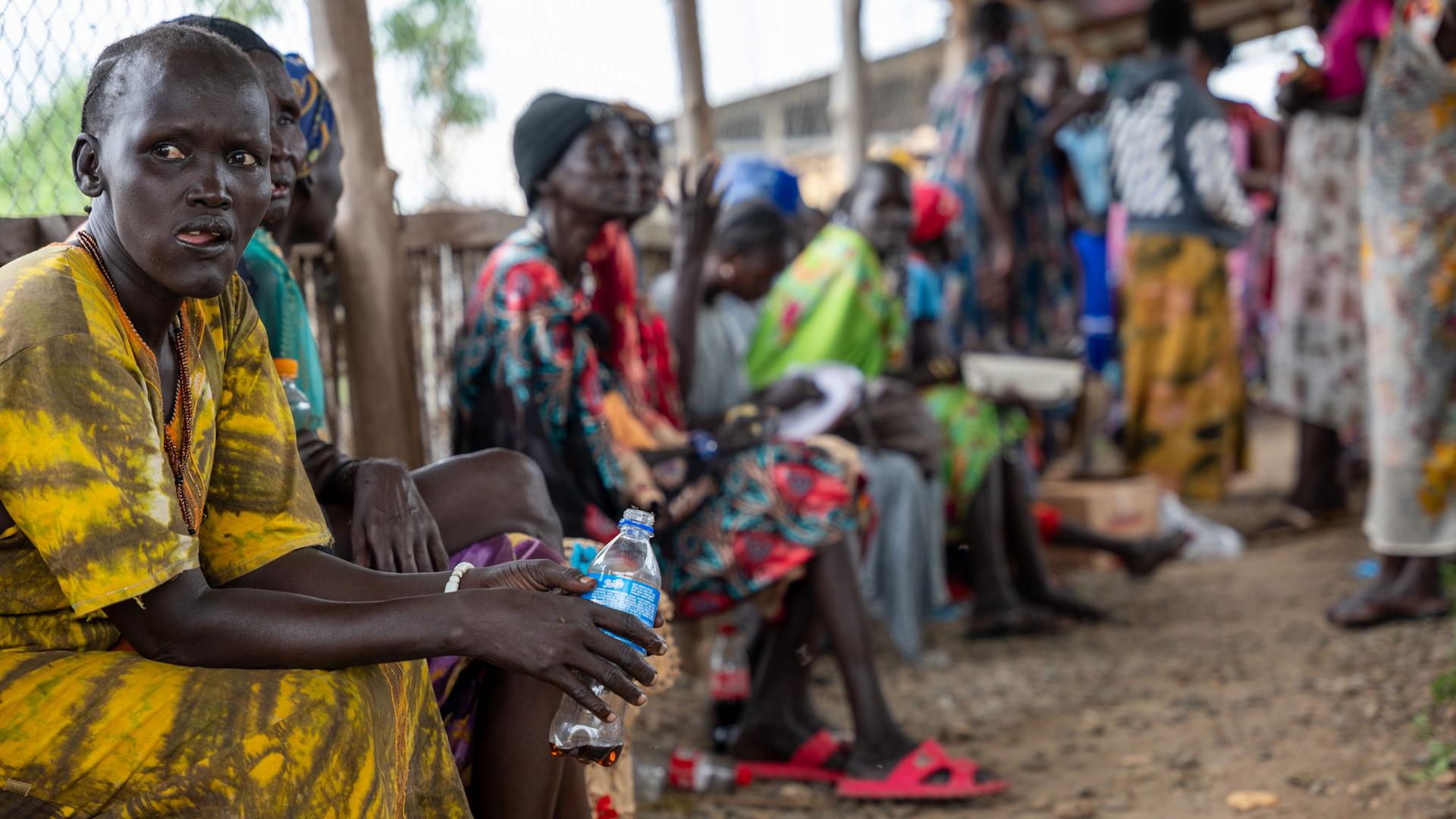On a rainy morning in Juba, Elizabeth Thonyuak prepared food for her five children and helped them get ready to walk to a school located near her tented house.
“This is the home we know, this is our life, there is no other.”
“This is the home we know, this is our life, there is no other,” she said as she walked down a crowded path through a camp for internally displaced people in Juba, South Sudan’s capital.
South Sudan gained its independence in 2011. But two years later, the country descended into eight years of civil war, altering the lives of millions of South Sudanese people who fled their homes during the conflict.
Related: South Sudan’s leaders make peace
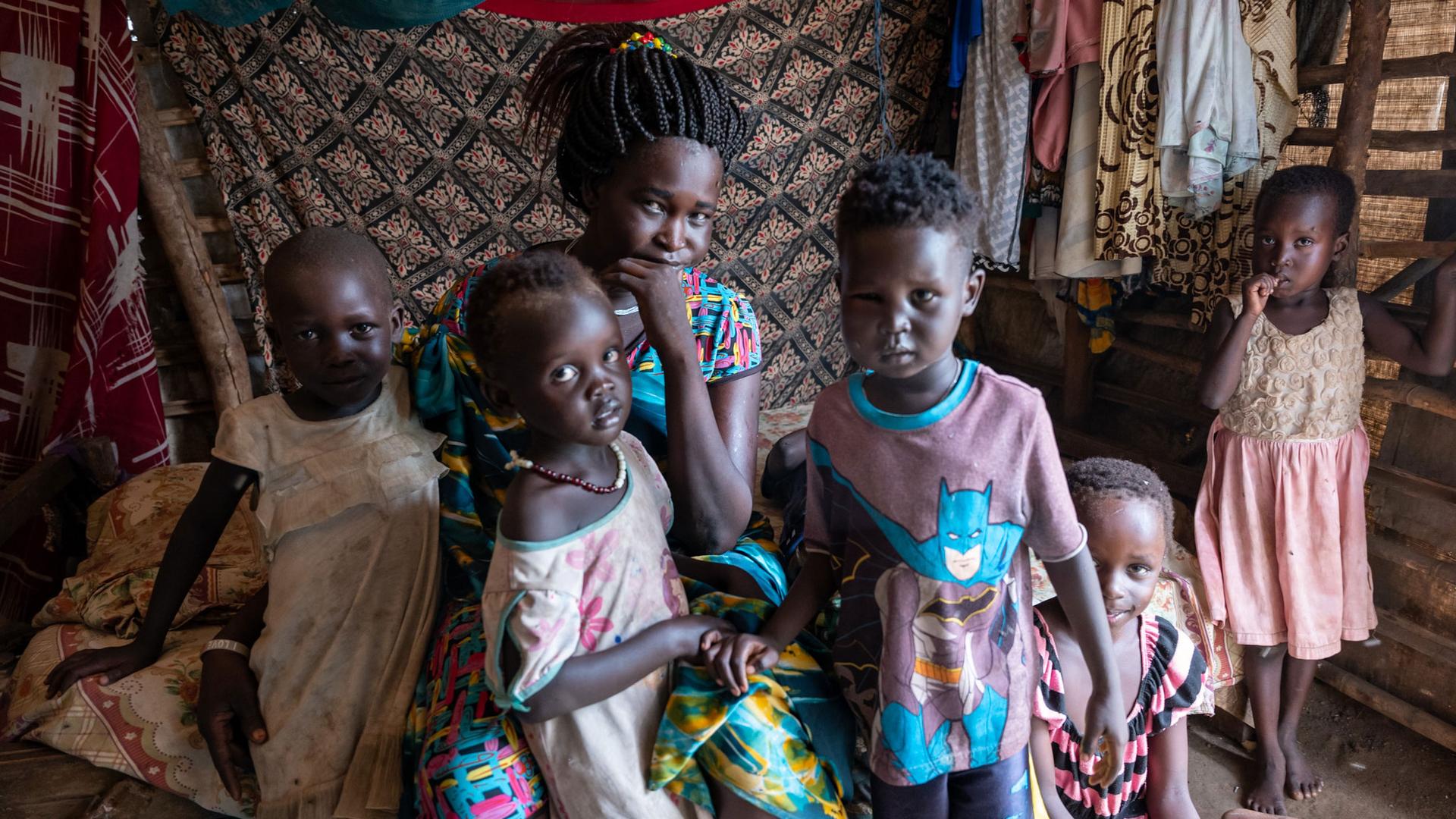
In 2013, what began as a power struggle within the ruling Sudan People’s Liberation Movement (SPLM) party, quickly turned into a war between forces loyal to Salva Kiir, the country’s president since 2011, and Riek Machar, Kiir’s former deputy and current first vice president. Machar is also the deposed leader of the armed opposition group, Sudan People’s Liberation Army-in Opposition (SPLA-IO).
Now, amid a renewed call to jumpstart a truth and reconciliation process, South Sudanese leaders have urged all those living in the United Nations’ protected civilian camps to return home, assuring safety and security throughout the country.
But for Thonyuak, life in the camp is all she has known for the past eight years and doesn’t intend to leave anytime soon.
“Go where? To do what?” she quipped, adding that she doesn’t think she will be safe at home in Mia Saba, a neighborhood about 3 miles northwest of the camp.
More than 4 million people in South Sudan have been uprooted and displaced by the country’s lengthy war.
Related: ‘Their lives collided with war’: Ukrainian refugees in Poland open their own schools
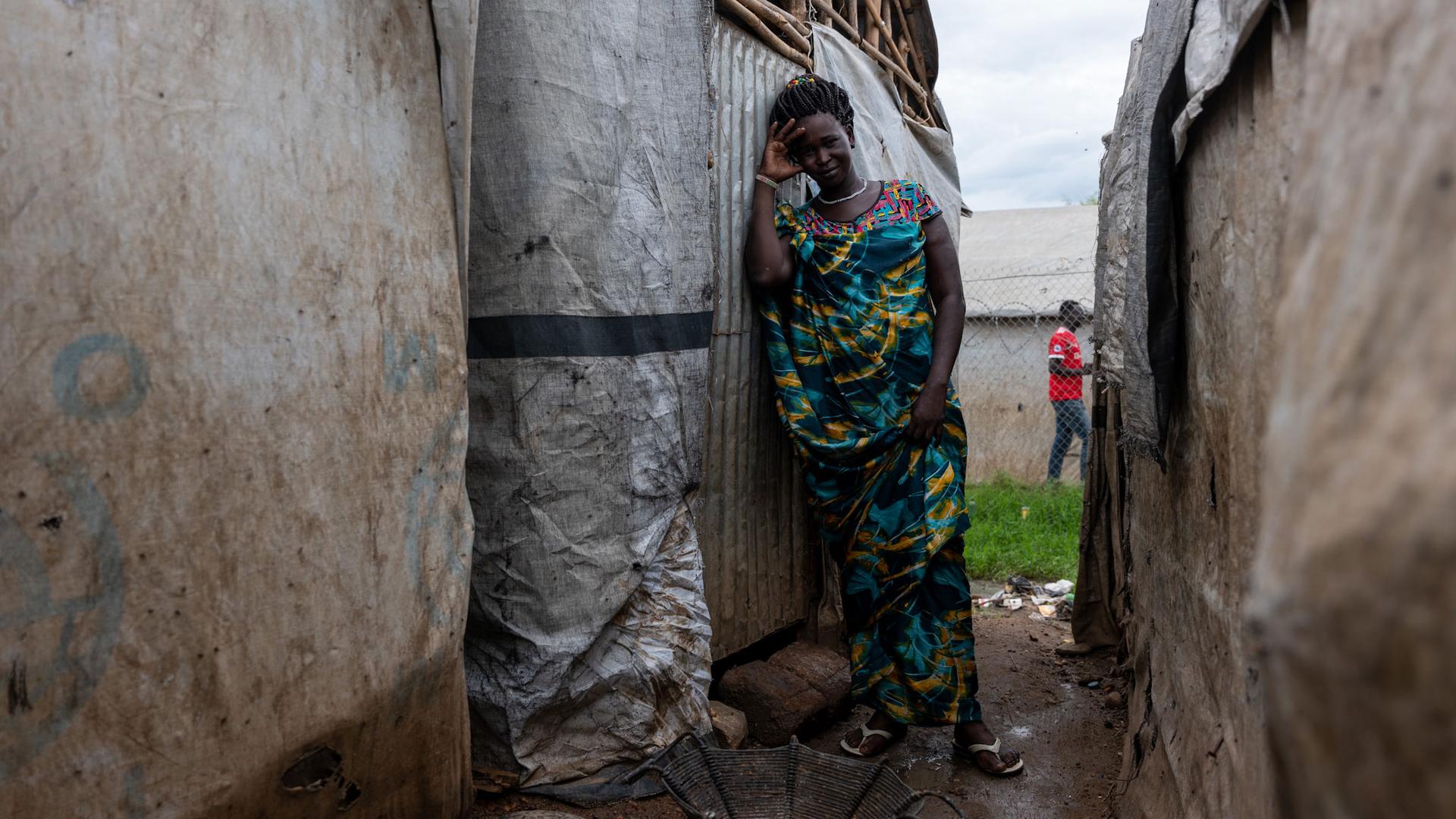
In March, President Kiir said that his government is working with other parties to bring a lasting peace and called for a national truth and reconciliation process that begins with the declassification of intelligence documents and public disclosure of war perpetrators.
“I have pledged that I will not deliberately return this country to war and I remain committed to this pledge. There are challenges we need to confront honestly as the people, along with our partners, to maintain totality and bring prosperity to our people.”
“I have pledged that I will not deliberately return this country to war and I remain committed to this pledge. There are challenges we need to confront honestly as the people, along with our partners, to maintain totality and bring prosperity to our people,” he said, adding that his government will give presidential pardon to all who will be implicated by the release of intelligence material.
Margaret Nyakhor has lived in the Juba camp since 2016, when the first fragile peace agreement failed and fighting broke out in Juba. She said she is waiting it out at the camp until she deems it safe for her to return home.
“People are still fighting outside there. We hear them saying there is peace, but people are still running to the camps. How can I go back?”
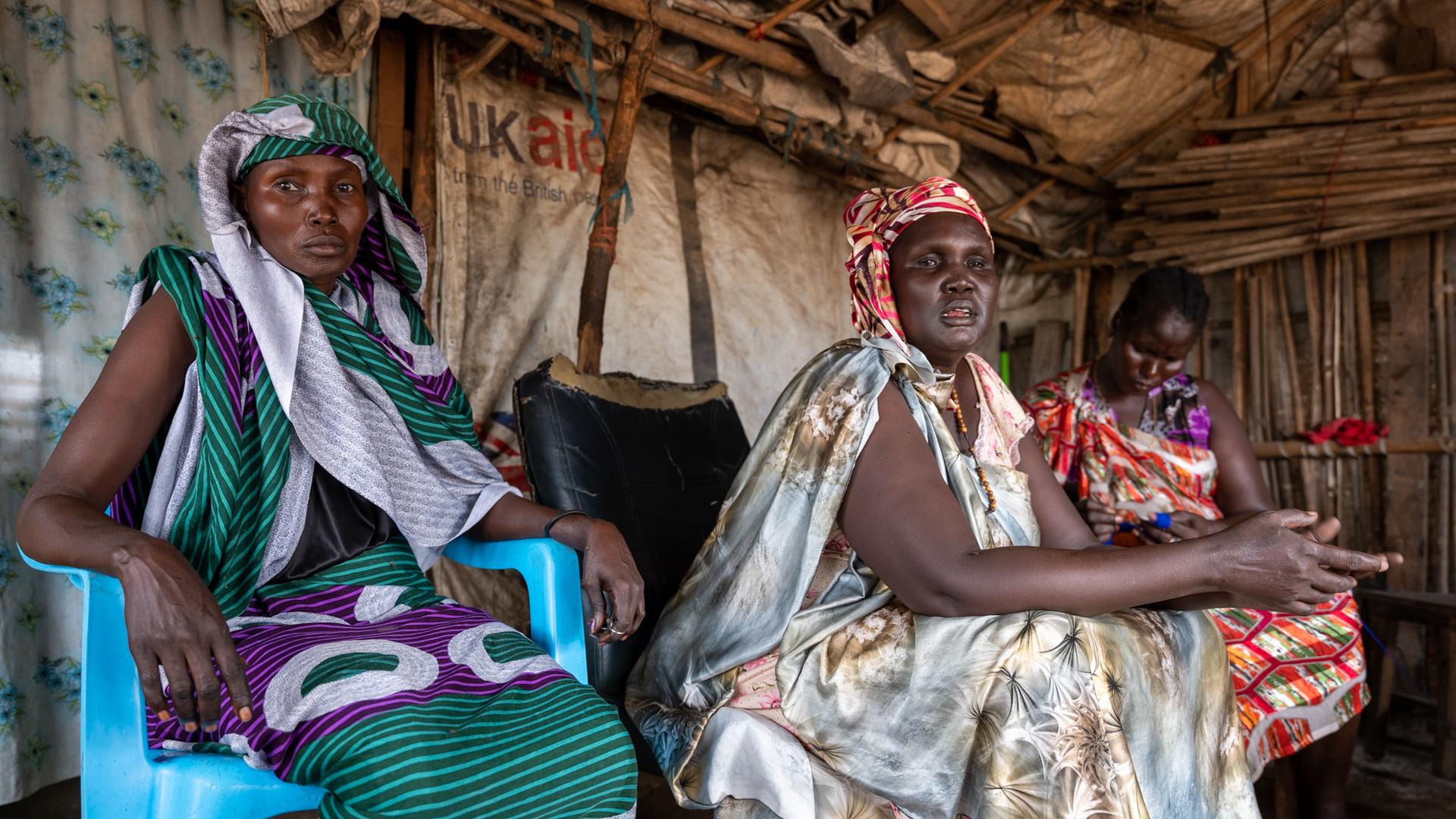
“People are still fighting outside there. We hear them saying there is peace, but people are still running to the camps. How can I go back?”
Nyakhor said she was one of a few people who attempted to leave the camps in 2020, but returned shortly after. She said she couldn’t find support to rebuild her life. “No NGOs [nongovernmental organizations] helped us. Not even the government,” she said, adding that she found her house looted.
Years of regionally mediated peace negotiations and failed ceasefires eventually led to a peace deal in 2018, hinged on forming a unified military. This paved the way for the formation of a transitional government of national unity (RTGoNU), composed of all warring parties. But few anticipated gains have been achieved.
In September 2020, the United Nations mission in South Sudan began the process of transferring management of protected camps to the government, in a bid to shift primary responsibility for the protection of all citizens.
This sparked resistance from camp residents who claimed that the process was premature, without adequate security measures in place.
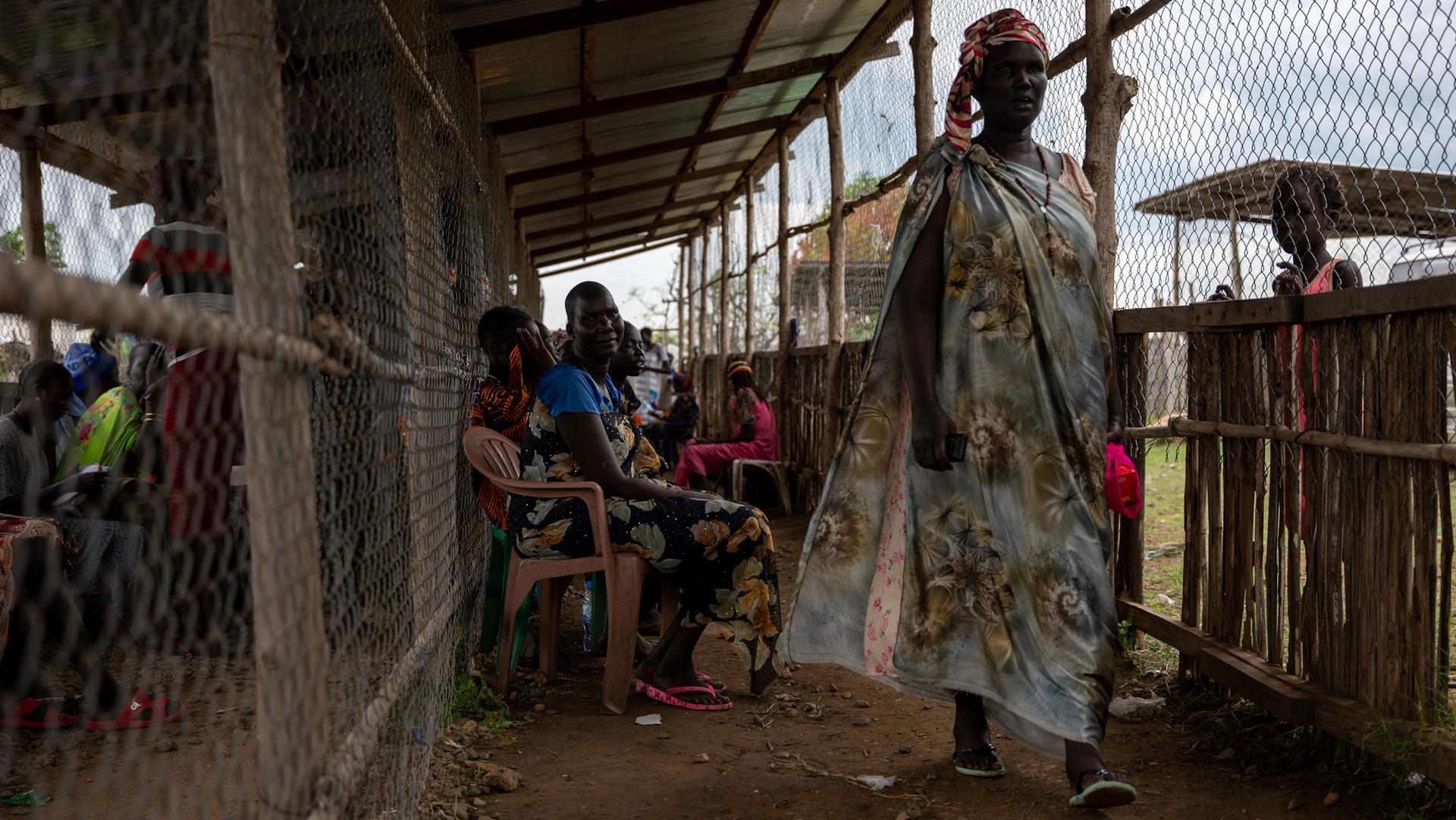
The International Organization for Migration said they continue to support voluntary repatriation of displaced people, but the process has been slow going. Communal conflict, drought and flooding have also complicated the process of returning home for many.
“Most of the families who want to go home would need to set themselves up for a new start. There is a need to regain the economic loss.”
“Most of the families who want to go home would need to set themselves up for a new start. There is a need to regain the economic loss,” head of IOM mission Peter Van Der Auvaraet said.
The unity government has begun to integrate a national army ahead of February 2023, when the transitional period is slated to end. But the process faced a setback as infighting within the Sudan People’s Liberation Movement/In-Opposition (SPLA/IO) army continues.
Over the past weeks, violent clashes have continued in the country’s northeastern states of Unity and Upper Nile. The armed opposition SPLA/IO has accused government troops of attacking their bases.
The UN mission has since withdrawn its peacekeeping troops from camps in the three major towns of Bor, Wau and Juba, leaving them under the care of the government of South Sudan.
A forum for truth and reconciliation launched in April, and leaders from both sides agreed to recommit to the 2018 peace agreement, with the goal of working toward the formation of a reunified national army under one command.
But, back at the Juba camps, Riek Gathkuot, a community leader and volunteer in the camp’s informal security watch group, said he can’t imagine rebuilding his life outside the camp — and doesn’t think it will happen anytime soon.
“We are here. Myself, I would like to leave the camp, but I can’t if no one gives us compensation to rebuild our lives.”
“We are here. Myself, I would like to leave the camp, but I can’t if no one gives us compensation to rebuild our lives,” he said.
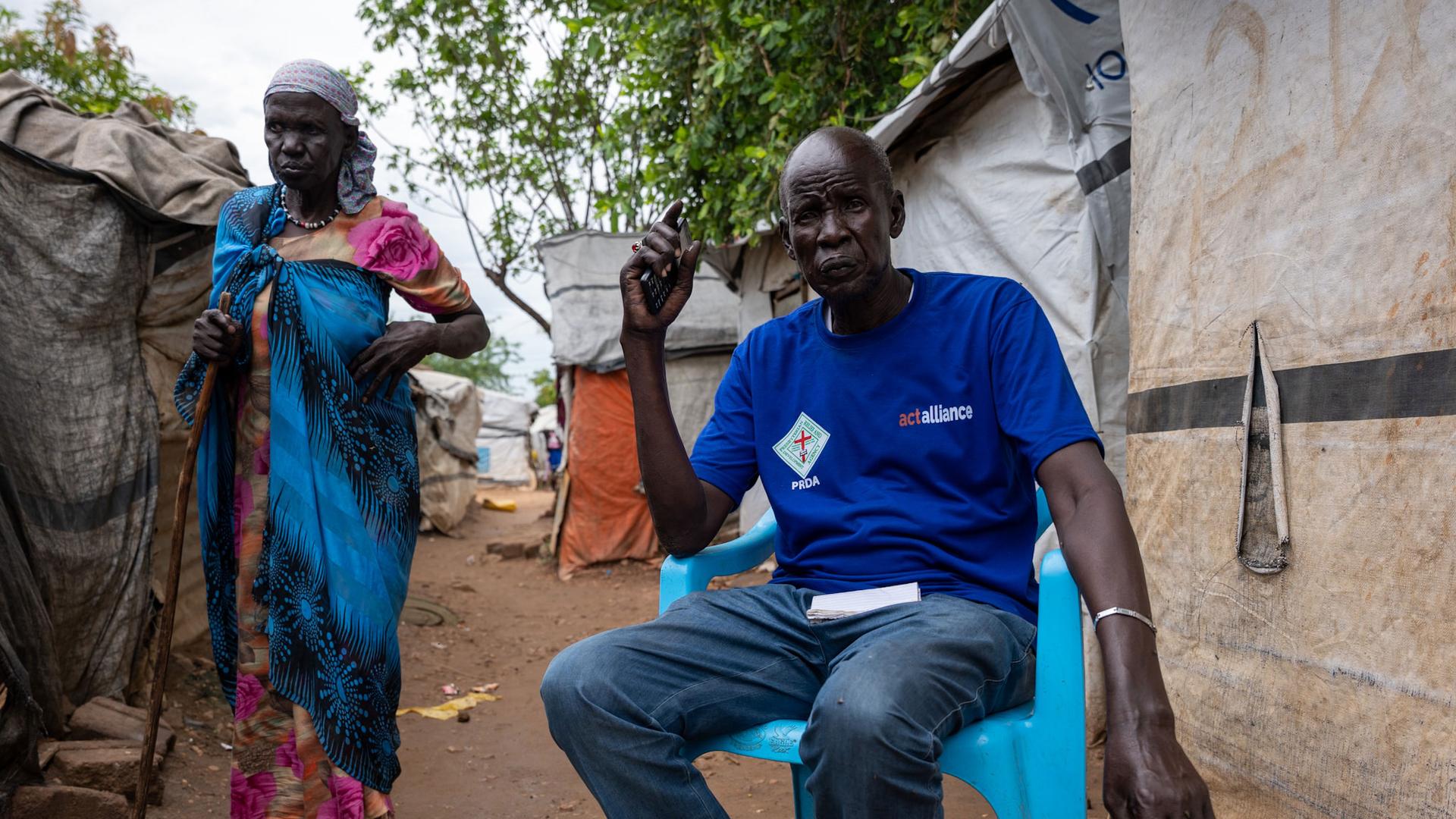
Life in the protected camps is far from what citizens yearned for when South Sudan gained independence, but they feel much safer there than the homes they fled.
Our coverage reaches millions each week, but only a small fraction of listeners contribute to sustain our program. We still need 224 more people to donate $100 or $10/monthly to unlock our $67,000 match. Will you help us get there today?
